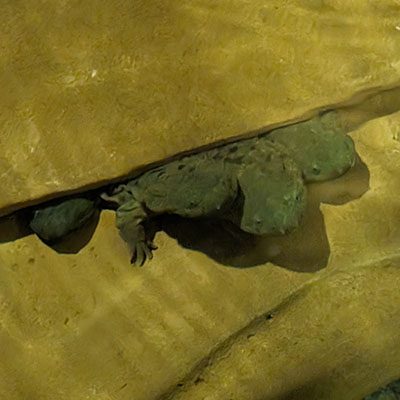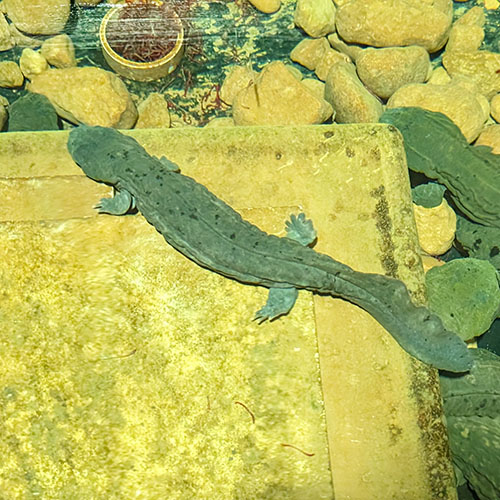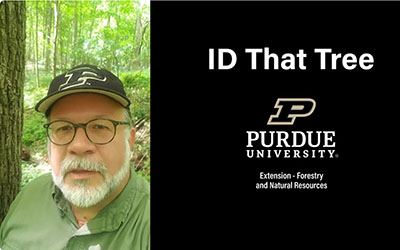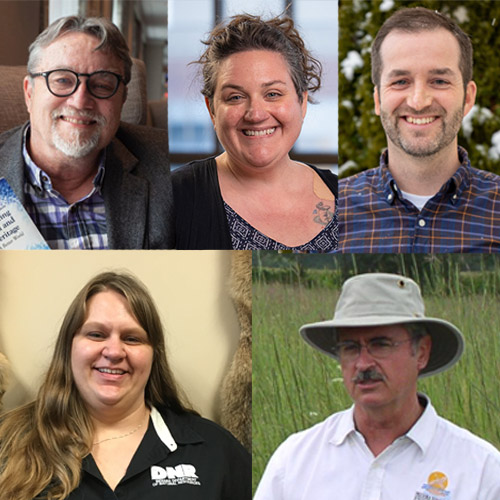Farmers Helping Hellbenders RCPP Program Accepting Applications
The Farmers Helping Hellbenders program is accepting applications through May 10 for the second round of the Indiana Natural Resources Conservation Service's Regional Conservation Partnership Program (RCPP) project. The project aims to assist with the conservation/recovery of eastern hellbender salamanders and improvement of aquatic resources in south central Indiana.
Natural Resources Conservation Service's Regional Conservation Partnership Program (RCPP) project. The project aims to assist with the conservation/recovery of eastern hellbender salamanders and improvement of aquatic resources in south central Indiana.
Eligible farmers and landowners, who wish to obtain funding to implement practices designed to keep nutrients and soil resources on fields and improve their watersheds, should contact their local NRCS office before May 10 to apply. Financial assistance is available for agricultural lands within the Blue River-Sinking Watershed boundary in Crawford, Floyd, Harrison and Washington counties, where the eastern hellbender can be found and is being actively managed.
Eligible practices for farmers in the project area include conservation cover, grassed waterways, wildlife habitat planting, nutrient management, riparian buffers and many others. Interested farmers and forest landowners who wish to implement conservation practices on their land should discuss their options with their district conservationist. Contact your local district conservationist by visiting Farmers.gov/Service-locator.
While NRCS accepts program applications year-round, Indiana producers and landowners should apply by May 10 to be considered for the current RCPP - Hellbender funding cycle. Applications received after May 10 will automatically be considered during the next funding cycle.
“The Farmers Helping Hellbenders RCPP project enables us to leverage partnerships to make a lasting positive impact on the habitat of the eastern hellbender salamander,” said Damarys Mortenson, state conservationist for the USDA’s NRCS in Indiana. “This project allows Indiana farmers and forestland owners to conserve the vital natural resources on their land while also protecting the habitat for hellbenders and other aquatic animals. It is a win-win.”
The eastern hellbender (Cryptobranchus alleganiensis alleganiensis) is a large, fully aquatic salamander, nicknamed the snot otter, water dog, devil dog, Allegheny alligator and water eel among other things. Their decline statewide has been documented as far back as the early-to-mid 1900s as a result of habitat loss and poor water quality. Hellbenders, which are listed as an endangered species in Indiana, play an important role in aquatic ecosystems and are indicators of clean water. Eastern hellbenders need clean water to survive as they breathe through their skin by absorbing oxygen from the river and stream water in which they live.
salamander, nicknamed the snot otter, water dog, devil dog, Allegheny alligator and water eel among other things. Their decline statewide has been documented as far back as the early-to-mid 1900s as a result of habitat loss and poor water quality. Hellbenders, which are listed as an endangered species in Indiana, play an important role in aquatic ecosystems and are indicators of clean water. Eastern hellbenders need clean water to survive as they breathe through their skin by absorbing oxygen from the river and stream water in which they live.
Hellbender populations are declining across their range, from Missouri to New York. This decline, which affects the hellbender population in Indiana's Blue River, is likely caused by human influences such as habitat degradation and destruction. The stream-bottom habitat of hellbenders can be degraded by sediment from eroded banks and fields and destroyed when streams are dammed or dredged. Hellbenders are also captured inadvertently by anglers or purposefully for illegal sale in the pet trade. Finally, emerging diseases may be impacting some populations of hellbenders. Specifically, the chytrid fungus (Batrachochytrium dendrobatidis) and Ranavirus (family Iridoviridae) are considered to be major threats to the persistence of hellbender populations across their range.
For much of the last 17 years, Dr. Rod Williams and his team have been researching eastern hellbenders, spearheading regional conservation efforts and advancing hellbender captive propagation, or the rearing of this ancient animal in captivity and their eventual return to the wild. The partnership had a major breakthrough over the summer of 2023 with the documentation of a young hellbender salamander in the Blue River while conducting routine surveys. This discovery is significant because over the past three to four decades, only adult hellbenders have been documented in the Blue River. The presence of a young salamander suggests that conservation efforts and rearing programs are accomplishing their goals for the recovery of this endangered species.
The Farmers Helping Hellbenders RCPP project is made possible by $2.7 million in funding from the U.S. Department of Agriculture’s RCPP, Purdue and other partnering organizations. The project is led by Purdue with assistance from 14 collaborating public and private organizations on the state and local level including NRCS. The goal of the project is to improve hellbender habitat in a four-county region in south central Indiana by expanding the use of agricultural conservation practices that lead to decreased sediment in local river systems. The project aims to improve water quality, enhance aquatic habitat, increase aquatic wildlife populations, increase riparian and pollinator habitat and protect karst topography.






